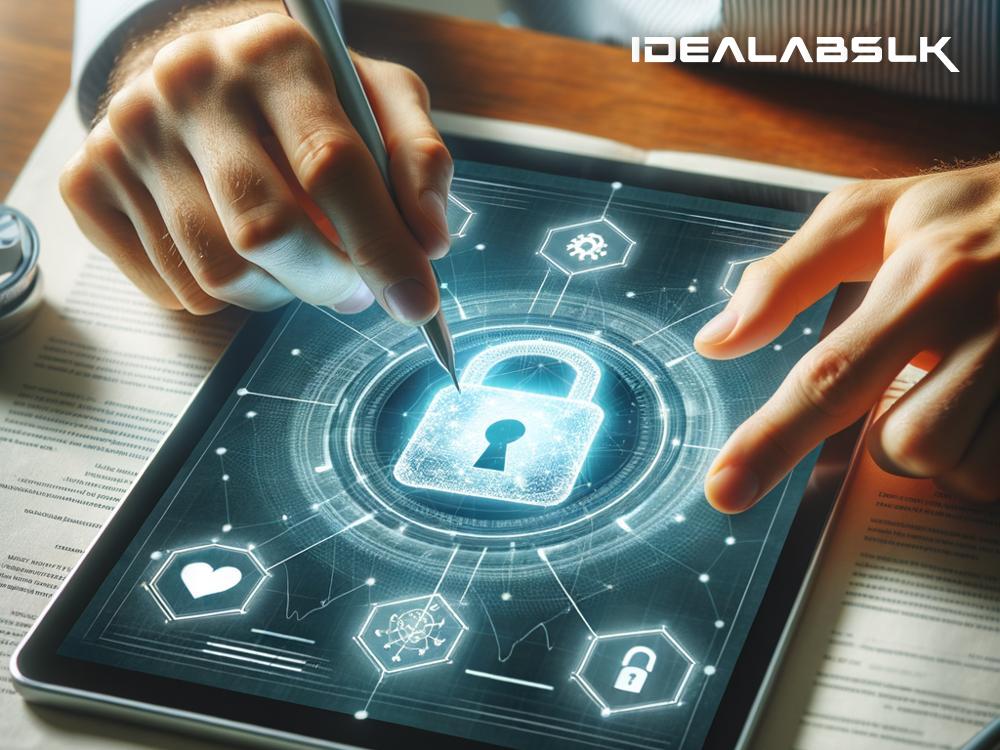How to Safely Use Digital Health Records: Best Practices for Keeping Personal Medical Data Secure
In the era dominated by digital advancements, our medical records have also taken a leap from the dusty shelves of a doctor's office into the realm of the internet. Digital Health Records (DHRs) have revolutionized the way we access, manage, and share our health information. They offer incredible convenience and efficiency, allowing you to easily keep track of your medical history, appointments, and prescriptions. However, with great convenience comes great responsibility, especially in safeguarding our sensitive medical data. Let's dive into how we can securely navigate the digital health landscape.
Understand Your Health Portal
First things first, get to know your health portal inside out. Most healthcare providers offer a patient portal where you can access your medical records, make appointments, and communicate with your healthcare professionals. Start by exploring the privacy settings. Ensure you know who has access to your records and under what circumstances your data can be shared. If anything seems unclear, don't hesitate to ask your healthcare provider for more information.
Strong Passwords are Your First Defense
A strong password is your first line of defense in the digital world. It's tempting to pick something easy to remember, like your birthday or your pet's name, but this makes it easier for hackers to access your personal information. Instead, opt for a complex password that includes a mix of letters, numbers, and special characters. To keep things manageable, consider using a reputable password manager to keep track of your secure passwords.
Enable Two-Factor Authentication (2FA)
Two-factor authentication adds an extra layer of security by requiring a second form of identification beyond just your password. This could be a code sent to your phone or a fingerprint. If your health portal offers 2FA, enable it without a second thought. It might add a few seconds to your login process, but the added security is invaluable.
Be Wary of Phishing Scams
Phishing scams are a common way for hackers to trick you into giving away your personal information, including your health data. Be skeptical of any emails or messages that ask for your health portal login details or personal information, even if they seem to come from a trusted source like your healthcare provider. When in doubt, directly contact your provider to confirm the legitimacy of the request.
Use Secure Networks
Avoid accessing your digital health records on public Wi-Fi networks, as these can be less secure and more susceptible to interception by malicious actors. If you need to access your records while out and about, consider using your phone's data connection as a personal hotspot or use a virtual private network (VPN) to create a secure connection.
Regularly Monitor Your Digital Health Records
Make it a habit to regularly check your digital health records for any inaccuracies or unfamiliar entries. This can help you catch any unauthorized access early and take immediate action. If you notice anything odd, report it to your healthcare provider and change your password immediately.
Be Cautious About Sharing Your Health Information
While it might be convenient to share your health information with loved ones or health apps, be thoughtful about who you give access to. Before sharing, ensure you trust the recipient and understand how they will use and protect your data. Always share your information securely, avoiding insecure methods like email or text messages.
Keep Your Guards Up Even When Switching Devices
If you're getting a new phone or computer, make sure to securely log out from all health portals and wipe the data from your old device. This prevents someone else from accidentally or intentionally accessing your personal health information.
Educate Yourself
Stay informed about the latest in digital health security by following reputable sources and taking advantage of any educational resources offered by your healthcare provider. Knowledge is power, especially when it comes to protecting your personal data.
Using Digital Health Records safely is all about being proactive and vigilant. By following these best practices, you can enjoy the benefits of easy access to your medical information without compromising your privacy and security. Remember, safeguarding your personal medical data in the digital age is a continuous process, not a one-time setup. Stay secure, stay informed, and take control of your digital health journey.

